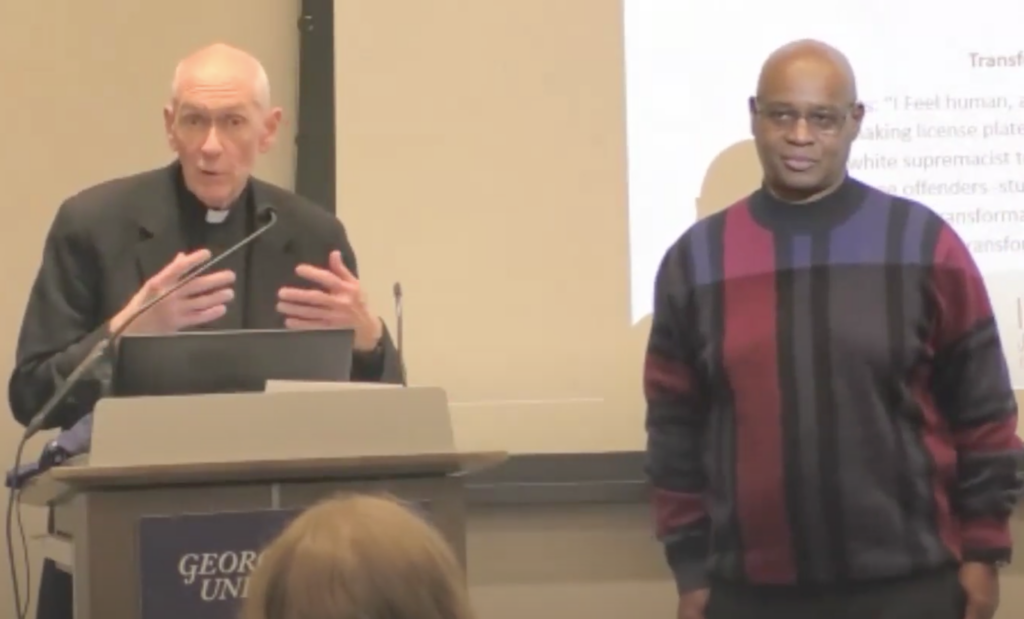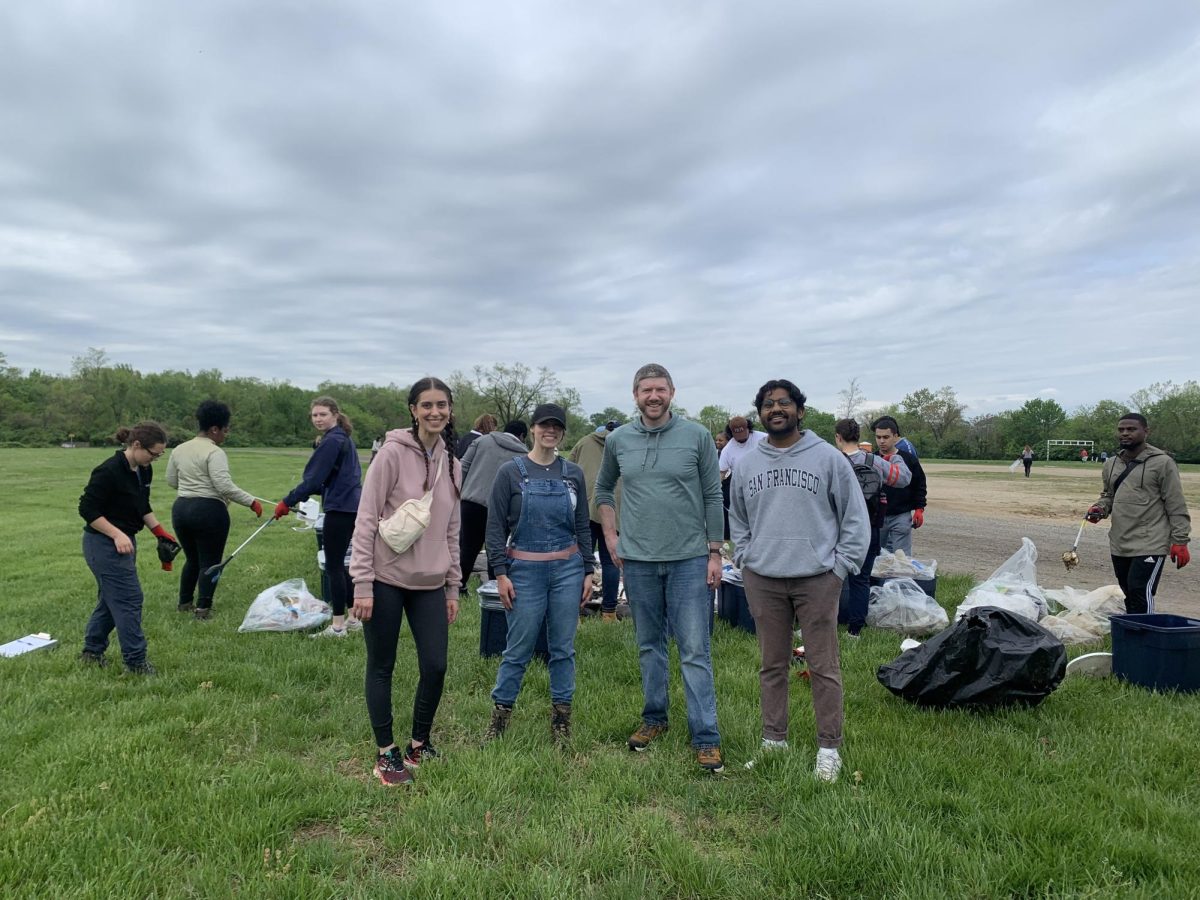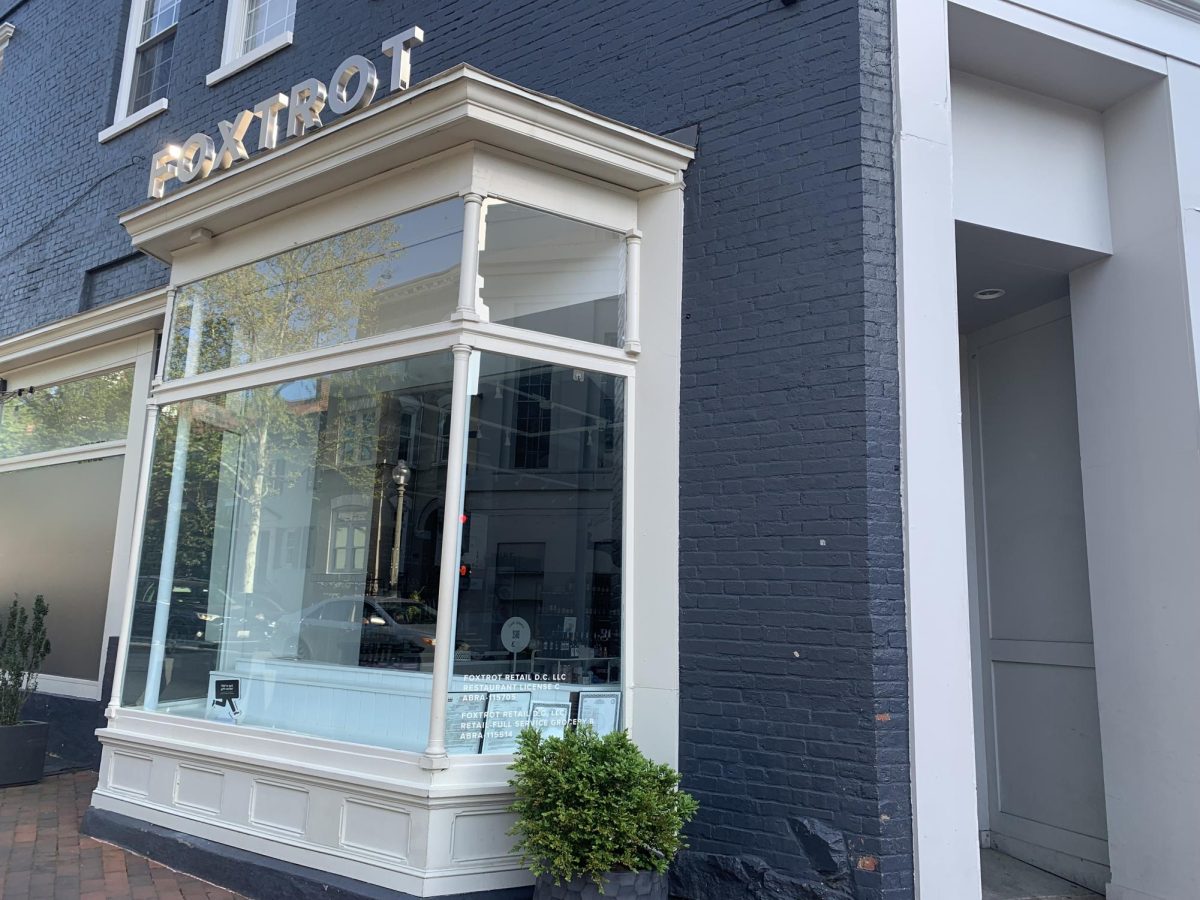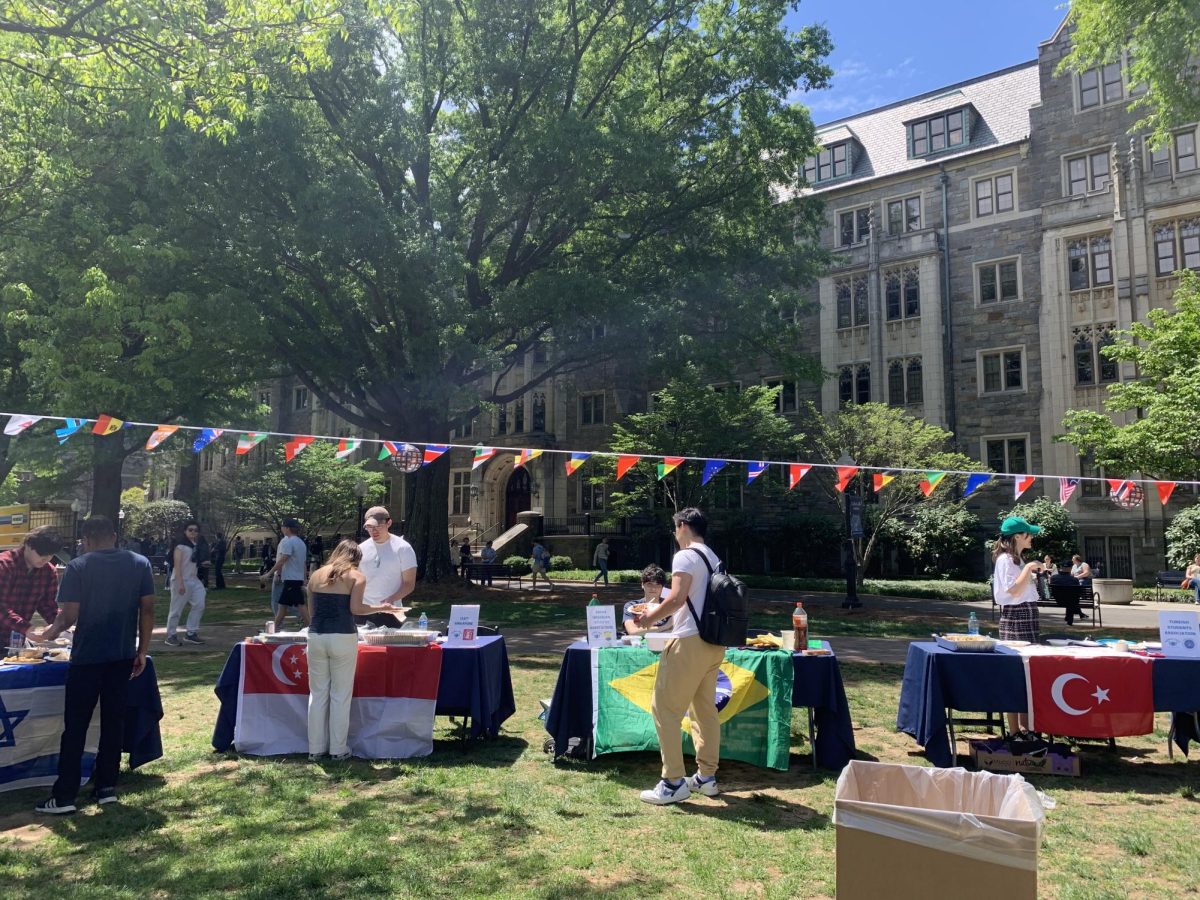Two experts on prison education discussed the injustices of incarceration in the United States and the importance of education at a Jan. 16 presentation.
Fr. Thomas Curran, S.J., the founder and coordinator of the Jesuit Prison Education Network (JPEN), which coordinates prison education programs for Jesuit universities, and Arlando Jones III, a program associate at the Georgetown University Prisons and Justice Initiative (PJI), which provides education and reentry programs to Washington, D.C.-area inmates along with wrongful convictions aid, spoke at the event. Curran and Jones discussed the importance of receiving an education in prison, drawing on Jones’ experience of taking college courses while serving 37 years in prison after being wrongfully convicted.
Curran said the current prison system is failing, leading to mass incarceration and limited success in rehabilitating convicted individuals.
“It’s just absolutely staggering. And because we have moved more and more people, we went from some, a couple hundred thousand people in prison to over two million people,” Curran said. “We just started to warehouse people and I say warehousing because it’s really a question about whether we are rehabilitating individuals.”
Curran presented several statistics related to mass incarceration that sparked JPEN’s creation. While the United States makes up about 5% of the world’s population, it holds nearly 25% of the world’s incarcerated population. Almost 700,000 people are released from prison each year, but 75% are still unemployed one year later.
Curran said that college education in prison reduces recidivism — new criminal offenses committed by formerly incarcerated individuals — by 43%.
“Just some college education, perhaps a couple of courses, can reduce recidivism. So just a little bit of investment can literally reduce and be an antidote to this.”
JPEN now connects prison education programs similar to PJI at nine colleges: St. Louis University, Regis University, Rockhurst University, Marquette University, Loyola University in Louisiana, University of Scranton, John Carroll University, St. John’s College in Belize and Georgetown University.

Curran shared the story of a women’s correctional facility in Missouri, where Rockhurst University sponsored college courses for inmates and correctional officers. The first cohort is expected to graduate in December 2024 with associate degrees.
Curran said the program creates new understandings as the joint program forces prison staff and inmates to work on homework assignments together.
“In some cases in Missouri, I had prison staff saying ‘I had challenges with this person or that person and now I needed to work with them because we had the same homework assignment.’ Education is transformative. Education brings forth a conversion in all of us about understanding how we all share that humanity. Prison education is about our call to a shared humanity,” Curran said at the event.
Jones, who took part in the PJI education program before his 2022 release, spent years in jail for a crime he did not commit. Police officers shot his father in 1970 when Jones was just two years old. At 16 years old, Jones was sentenced to the Metropolitan Transition Center for a crime he did not commit.
Jones said not having the skill sets and education prevented him from sufficiently advocating for his innocence and escaping the cycle of violence.
“I had no words to define my life. I’m consigned to a life of poverty, of low expectations,” Jones said. “So I go off to the penitentiary for a crime that I didn’t have any way of defending myself because I had no education.”
Jones added that the Jesuit education from Rockhurst courses instilled him with a sense of hope and a desire to better the lives of those around him, leading him to work in hospice care while imprisoned.
“I was bold enough to try new things. I worked in hospice care, dealing with people and I learned from dealing with a member of the Aryan Brotherhood who hated everything that I was. He taught me love and to be compassionate,” Jones said.
Jones said his passion is working with PJI students to help others who are wrongfully convicted through the “Making An Exoneree” course, where students investigate wrongful convictions.
“They examine the case, study the case, do a documentary and make the person a human again. And that’s what an education does. It gives a person a voice and a chance to create a narrative of their own life as opposed to being the subject of other folks,” Jones said.
Curran said he hopes to increase connection between the schools participating in JPEN so prison education can humanize convicted individuals across the country.
“Let’s not have these island operations, but let’s start bringing the schools together so that we have best practices,” Curran said. “That’s my work because it is a call to our shared humanity. In every one of the facilities I’ve been in, repeatedly over and over and over, the same refrain that I hear from the students is ‘I feel human again.’”




















